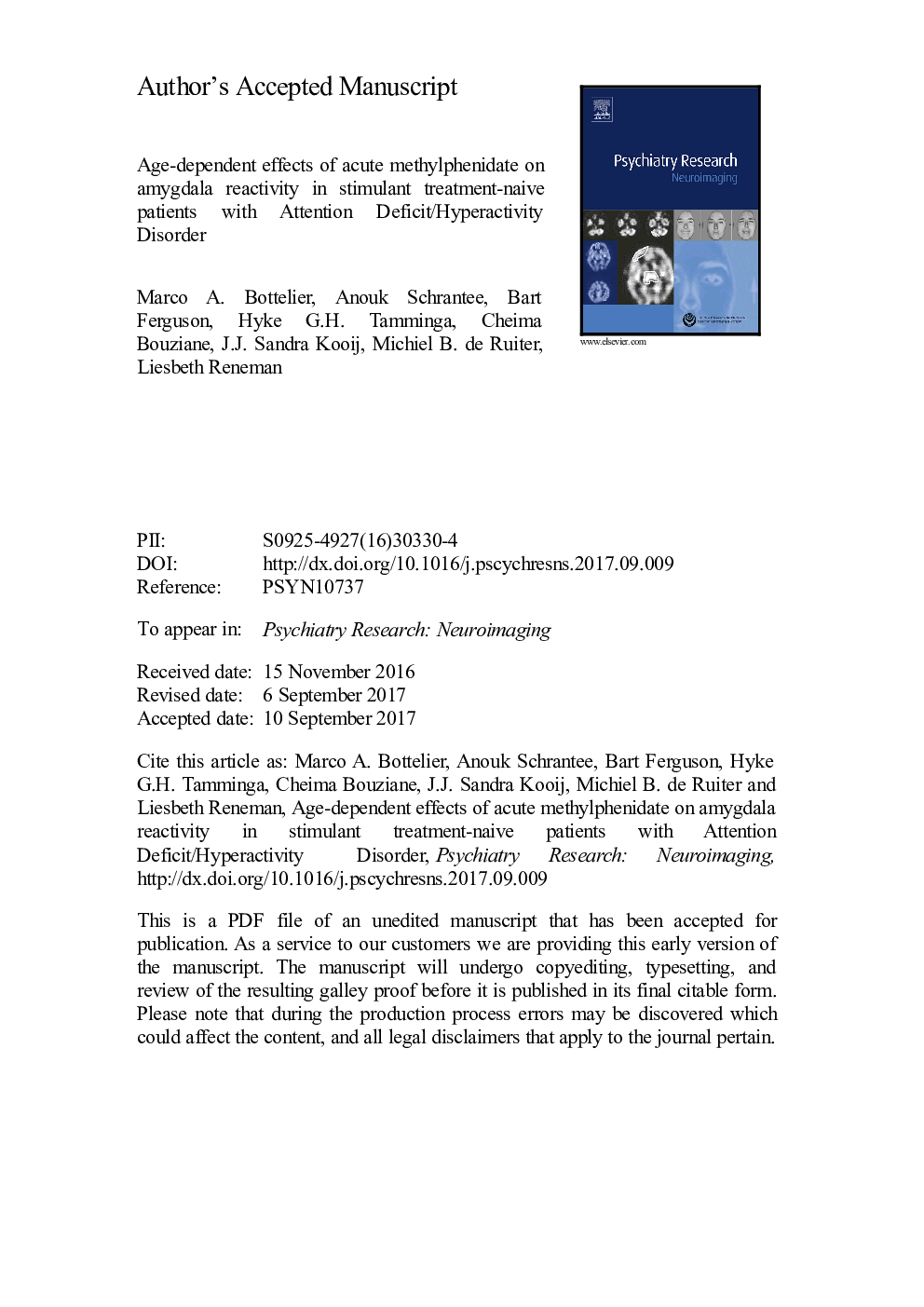| Article ID | Journal | Published Year | Pages | File Type |
|---|---|---|---|---|
| 4933871 | Psychiatry Research: Neuroimaging | 2017 | 31 Pages |
Abstract
In the present study, we investigate whether methylphenidate (MPH) affects emotional processing and whether this effect is modulated by age. We measured amygdala reactivity with functional Magnetic Resonance Imaging (fMRI) during processing of angry and fearful facial expressions in male stimulant treatment-naive patients with ADHD (N = 35 boys; N = 46 men) and 23 healthy control subjects (N = 11 boys; N = 12 men). In ADHD patients, we also measured amygdala reactivity 90Â min after an acute oral challenge with MPH (0.5Â mg/kg). Mean amygdala reactivity was analyzed for all subjects using a repeated measures analysis of variance (ANOVA). Whole-brain maps were analyzed for the patients only. At baseline, we found a age*diagnosis effect approaching significance (p = 0.05) in the right amygdala due to lower reactivity in children with Attention Deficit/Hyperactivity Disorder (ADHD) vs. controls (â31%), but higher reactivity in adults with ADHD vs. controls (+31%). MPH significantly reduced right amygdala reactivity in all patients, resulting in further reductions in children. In the left amygdala, reduction of amygdala reactivity was confined to adult ADHD patients whereas there was no change in children with ADHD. MPH-induced decrease of amygdala reactivity in adults might be a promising avenue for managing emotional dysregulation when replicated for chronic MPH treatment.
Keywords
Related Topics
Life Sciences
Neuroscience
Biological Psychiatry
Authors
Marco A. Bottelier, Anouk Schrantee, Bart Ferguson, Hyke G.H. Tamminga, Cheima Bouziane, J.J. Sandra Kooij, Michiel B. de Ruiter, Liesbeth Reneman,
